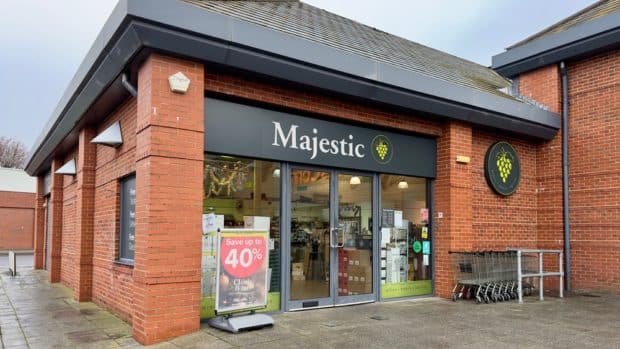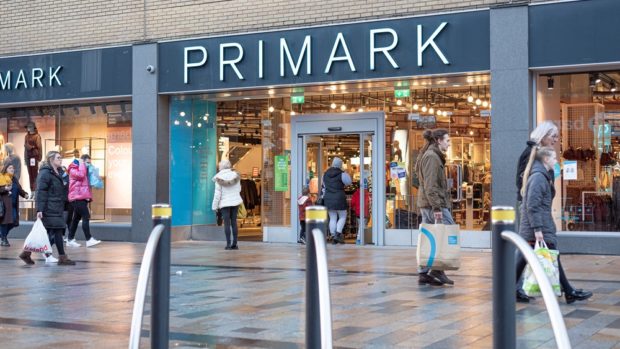Over the past year shipping delays (32 per cent), supply chain disruption (31 per cent) and the Covid pandemic rules and regulations making the job more difficult (30 per cent) have been the top factors impacting small businesses within the retail sector, according to a new report. The staffing and supply report carried out by card payments specialist takepayments, surveyed SME business owners across the UK to uncover how the current staff shortages and supply chain crisis is affecting small businesses.
The survey findings reveal more than two fifths (44 per cent) of small businesses within the retail sector have experienced staff shortages while more than half (53 per cent) have experienced supply chain issues.
The combination of the supply chain issues and staff shortages has financially impacted one in three (38 per cent) small businesses within the sector and one in ten (10 per cent) describe the impact as critical.
Two thirds (64 per cent) state they expect the staff shortages and supply chain issues to get worse before they get better, while two fifths (42 per cent) of small business owners within the sector said that there is a strong chance their business wouldn’t survive if both were to continue into 2022.
As for the festive period, one in five (29 per cent) expect the supply chain and staff shortages to cause major disruption to their customers and a further one in five (21 per cent) expect the issues to cause moderate disruption.
Retail business owners are adapting their business in response to the ongoing supply chain and staff shortages issues in a bid to continue trading as well as they can. In response to the supply chain issues, one in four (24 per cent) businesses have introduced shorter business hours as well as limiting or changing the services they provide. A further one in five (21 per cent) expect to change the services they provide in the next 3 months.
Regarding staff shortages, one in five (17 per cent) have increased pay for vacancies, and a further one in five (19 per cent) expect to do so in the next three months. In an attempt to retain their current staff one in five (22 per cent) have increased their pay, and a further one in five (18 per cent) expect to increase pay over the next 3 months. Over a third (38 per cent) of retail SME’s have also introduced flexible working to retain staff as well as improving working conditions and job perks (35 per cent).
As businesses within the sector adapt their business to survive, one in four (25 per cent) state they have had to change or delay growth and development plans for the business.
Customers are also facing the brunt of the supply chain and staff shortages issues, as one quarter (25 per cent) of business owners state they have already raised prices for consumers, one in five (17 per cent) state they plan to within the next three months and a further one in five (18 per cent) plan to do so within the next 3-6 months.
Of those that have increased prices, one in five (19 per cent) have increased their prices by 10-20 per cent and over one in ten (13 per cent) have increased their prices by a staggering 20-30 per cent.
Two fifths (43 per cent) of small business owners within the retail sector believe the issues with both the supply chain and staff shortages are set to continue for 2-5 years. With that in mind, small business owners within the sector are calling on the government for support as these issues continue. Over two fifths (44 per cent) are calling for tax breaks specifically for small businesses to help overcome the financial implications both issues are causing small businesses. This is followed by army involvement to plug gaps such as fuel delivery (31 per cent) and paid training programmes (25 per cent).
The support UK small business owners think the government should offer over the next 3 months Percent of business owners calling for the support
| The support UK small business owners think the government should offer over the next 3 months Percent of business owners calling for the support | Per cent of business owners calling for the support |
| Tax breaks for small businesses | 44% |
| Army involvement to plug gaps such as fuel delivery | 31% |
| Paid training programmes | 25% |
| Specific SME support packages | 24% |
| Emergency visas – as introduced for HGV drivers | 24% |
Sandra Rowley at card payment solutions provider takepayments limited said: “Until the supply and staff shortage issues are overcome, small business owners across the UK could continue to be hit by negative financial implications which may ultimately lead to further increases in consumer prices.
Small businesses within the retail sector are calling on the government to introduce a tax break to help them financially navigate through this climate. This support would help relieve the financial pressures their businesses are facing, whether it’s increased stock costs due to supply issues or delaying the growth of their business.”








Share